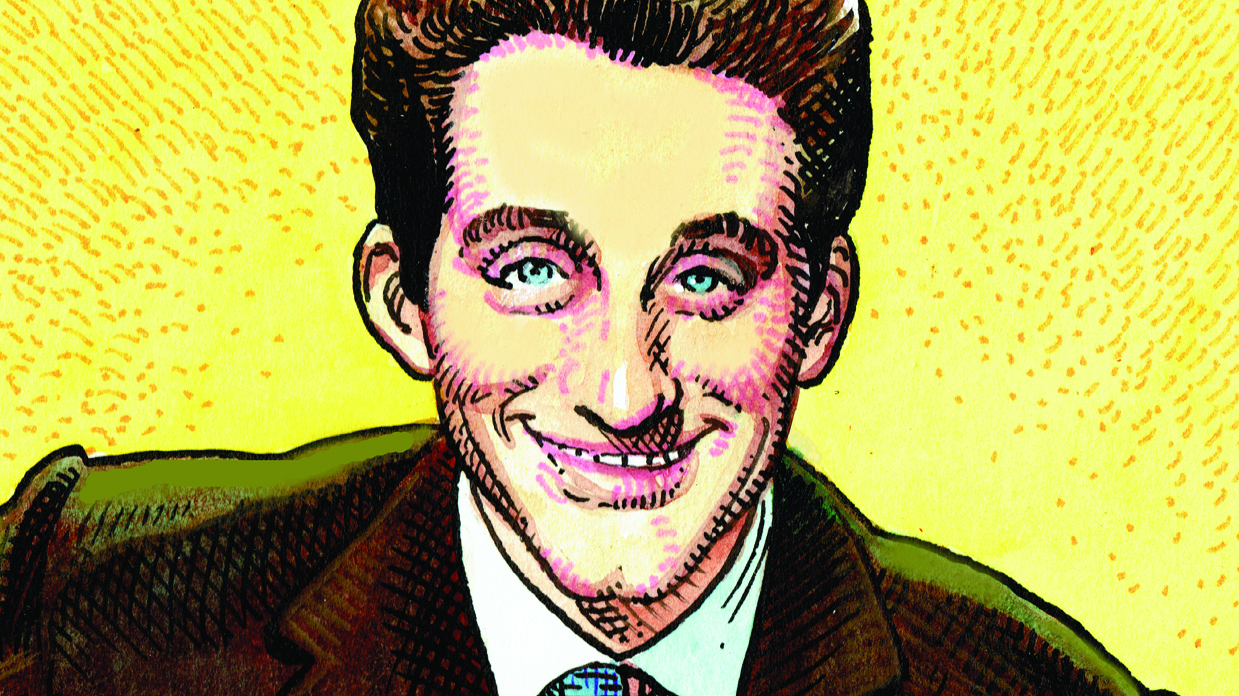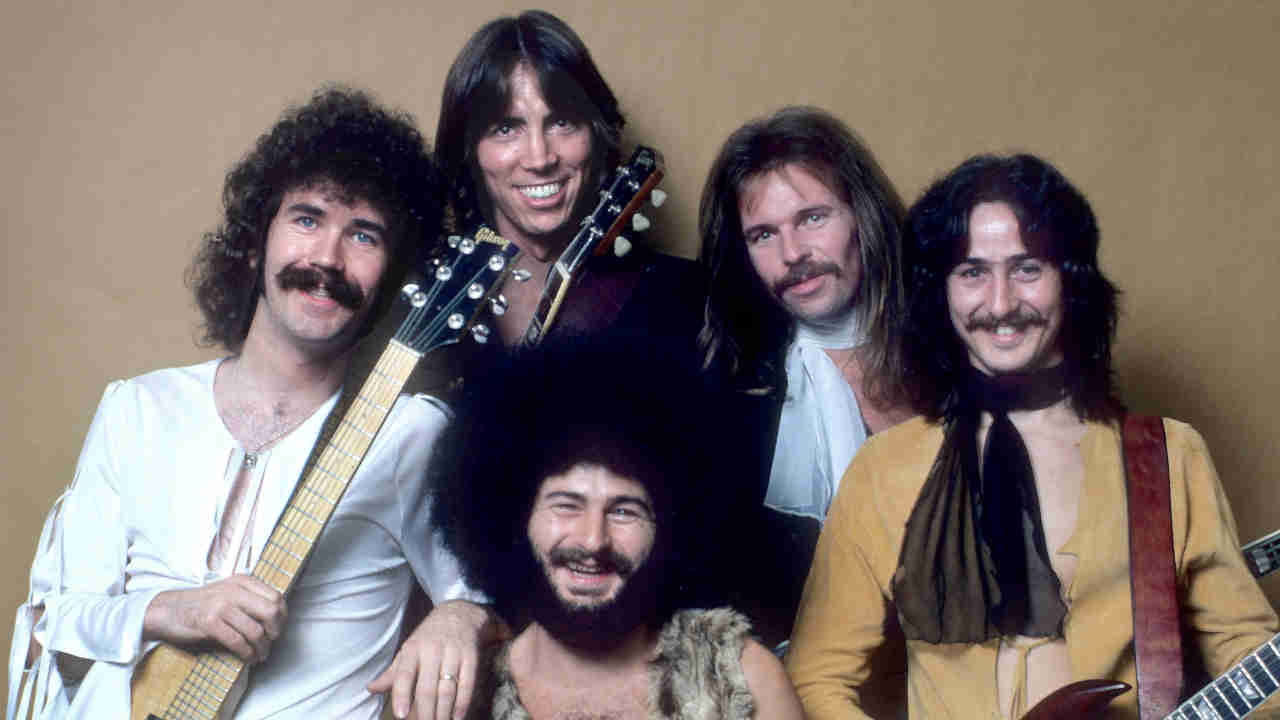William Stout's Legends Of The British Blues: Lonnie Donegan
If there had been no Lonnie Donegan, there’d have been no Beatles, no Rolling Stones, no 20th century British rock’n’roll as we know it…

Select the newsletters you’d like to receive. Then, add your email to sign up.
You are now subscribed
Your newsletter sign-up was successful
Want to add more newsletters?

Every Friday
Louder
Louder’s weekly newsletter is jam-packed with the team’s personal highlights from the last seven days, including features, breaking news, reviews and tons of juicy exclusives from the world of alternative music.

Every Friday
Classic Rock
The Classic Rock newsletter is an essential read for the discerning rock fan. Every week we bring you the news, reviews and the very best features and interviews from our extensive archive. Written by rock fans for rock fans.

Every Friday
Metal Hammer
For the last four decades Metal Hammer has been the world’s greatest metal magazine. Created by metalheads for metalheads, ‘Hammer takes you behind the scenes, closer to the action, and nearer to the bands that you love the most.

Every Friday
Prog
The Prog newsletter brings you the very best of Prog Magazine and our website, every Friday. We'll deliver you the very latest news from the Prog universe, informative features and archive material from Prog’s impressive vault.
Tony Donegan’s father played violin with the Scottish National Orchestra, but gave up playing music professionally when Tony – later to find fame under his new name, Lonnie – was two years old, so music was a big part of the life of the future skiffle star from day one. Hearing Josh White’s blues on the BBC inspired young Tony to buy a guitar and trace the blues backwards to its roots. By 1950, Donegan was an expert and he knew as much about the blues as anyone in England. He began playing the tiny, new jazz clubs that were sprouting up around London. And it wasn’t long before the capital started to take notice.
Hearing Tony was good at playing banjo, Chris Barber asked him to audition for his jazz band. The rumours were incorrect. Despite never actually having held a banjo, Donegan bought one and tried to fake it. Tony’s musical skills failed the audition – but his personality didn’t. Donegan was hired but then drafted for army service in Vienna. He obtained 45s from US troops and listened to blues on American Forces Radio Network. After his service, he accessed blues from the American Embassy library. In 1952 the Tony Donegan Jazz Band opened for American blues legend Lonnie Johnson. A confused master of ceremonies announced them as “Tony Johnson” and “Lonnie Donegan”, and so Donegan kept Lonnie’s first name as a tribute to the great blues master.
In 1953, cornetist Ken Colyer took over the Barber band. The day after Ken Colyer’s Jazzmen debuted, they cut Donegan’s first commercially released records. Lonnie performed a mixture of blues and folk music commonly known as “skiffle” (named for the 1930s Dan Burley Skiffle Group) during Jazzmen mid-show breaks. When Colyer left in 1954, the group was renamed the Chris Barber Jazz Band. They recorded New Orleans Joys (1954) for Decca Records. Despite a clearly expressed demand for instrumentals from the label, when the producer stepped out the skiffle band recorded some vocals (including such future classics as their takes on Lead Belly’s Rock Island Line and John Henry). The LP that featured those vocals (despite Decca’s resistance to their inclusion) sold 60,000 copies in a month, and became the first debut LP to go gold in the UK and hit the Top Ten in the US. In six months, Rock Island Line had sold three million copies, 50 times the early sales of its source LP. Its 22-week English chart run peaked at No.8. As it was a band recording rather than a solo work, Lonnie made no money from his hit beyond his original session fee.
His credit as The Lonnie Donegan Skiffle Group, however, made him a star and a huge influence on a whole generation of musicians waiting in the wings. John Lennon and legions of other teens were inspired to form skiffle bands.
As soon as Decca dropped Donegan (mistakenly believing the skiffle craze was over), he was recording for Columbia. Lonnie left Barber to go solo on Pye Records. The single Lost John hit No.2 in the UK in 1955. The first UK male to score two US Top Tens, the King Of Skiffle scored 24 UK Top 30 hits. He appeared on American television and shared bills with Chuck Berry, making $1,500 (£1,043) a week at a time when $800 (£557) was an entire year’s wage in England. Back in the UK with Denny Wright (one of England’s finest blues guitarists at the time), Lonnie released the album Lonnie Donegan Showcase with songs by Lead Belly, Leroy Carr and other blues legends.
Donegan kept charting right up until the arrival of The Beatles, and afterwards it was ill health that ended up slowing him down. His first heart attack struck him in the United States in 1976, resulting in quadruple bypass surgery.
Lonnie often reunited with Barber for tours and records, then resurfaced with 1978’s Puttin’ On The Style (early songs re-recorded with Rory Gallagher, Ringo Starr and Elton John) and on Van Morrison’s The Skiffle Sessions – Live In Belfast 1998. Donegan’s final CD was This Yere De Story. After several cardiac events, he died from a heart attack in 2002 just before he was to appear with The Rolling Stones at a George Harrison memorial concert.
Sign up below to get the latest from Classic Rock, plus exclusive special offers, direct to your inbox!
Trivia:
Lonnie appears in the film The Six-Five Special (1958), playing a live and searing Jack O’ Diamonds.
When John Lennon first met Paul McCartney, Lonnie’s Gamblin’ Man was in the charts at No.1.
Van Morrison presented Lonnie with 1994’s Ivor Novello Lifetime Achievement Award.
In 2004, Dire Straits’ Mark Knopfler recorded his own tribute to Lonnie, Donegan’s Gone.
“Lenny Goonagain” was a Peter Sellers parody of Donegan (Lonnie was not amused).
Visit www.williamstout.com for information on William’s artwork. His book Legends Of The Blues is out now on Abrams ComicArts.
